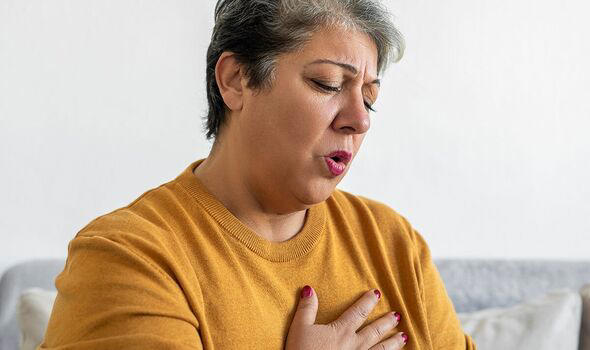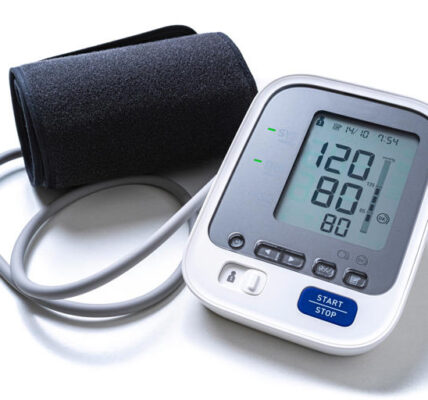Heart Attack Symptoms
Understanding heart attack symptoms is vital for early detection and intervention. This guide will help you recognize the signs, especially chest pain, and the associated risk factors.
Many people underestimate the risk factors and are unaware of the early signs that can indicate a heart attack is imminent. Recognizing these heart attack symptoms, especially chest pain, is crucial for seeking prompt medical help. This post will guide you through the classic signs of a heart attack, what chest pain feels like, where it is typically felt, additional symptoms to watch for, and potential risk factors.

© Provided by The Times of India
What Do Heart Attack Symptoms Feel Like?
When we talk about heart attack symptoms, chest pain is often the most recognized sign. However, it’s essential to understand that not all chest pain is the same. Heart attack-related chest pain can be described in various ways:
- Pressure or Tightness: Many people describe it as a heavy weight pressing down on the chest.
- Squeezing Sensation: This can feel like a tight band around the chest.
- Burning Discomfort: Some might experience a burning feeling, similar to heartburn.
Typically, this pain lasts for more than a few minutes and can change in intensity. It’s important to note that heart attacks do not always present with intense pain. Some people may have mild or unusual symptoms, particularly women, older adults, and individuals with diabetes.
Where Is the Pain Felt the Most?
When discussing heart attack symptoms, it’s crucial to recognize where the pain is located. Generally, the pain associated with a heart attack is found:
- In the Center or Left Side of the Chest: This is the most common location for heart attack-related pain.
- Radiating to Other Areas: The pain may spread to the arms (especially the left arm), jaw, neck, back, or even the abdomen. It is vital to be aware that the pain can occur in areas outside the chest, which can sometimes be misleading.
Additional Symptoms to Look For
In addition to chest pain, there are other heart attack symptoms that you should be aware of. These can help provide a clearer picture of what is happening. Common accompanying symptoms include:
- Shortness of Breath: This may occur with or without chest pain and can be a significant indicator of a heart issue.
- Nausea or Vomiting: Some individuals may feel nauseous or even vomit during a heart attack.
- Indigestion or Heartburn: Discomfort that feels like indigestion can be misleading and should not be ignored.
- Dizziness or Lightheadedness: A feeling of faintness or weakness can indicate a heart problem.
- Profuse Sweating: Cold, clammy skin and excessive sweating are common symptoms during a heart attack.
- Unexplained Fatigue: Feeling unusually tired or weak without reason can be a warning sign.
- Anxiety or Sense of Impending Doom: Many people report feeling anxious or having a sense that something is wrong.
These symptoms typically persist for more than a few minutes and do not improve with rest or over-the-counter medications. If you experience these signs, it’s vital to seek medical help immediately.
Understanding the Risk Factors
Recognizing the heart attack symptoms is only part of the equation; understanding the risk factors is equally important. Knowing your risk can help you take steps to reduce it. Key risk factors include:
- Age: The risk of a heart attack increases as you age.
- Gender: While men have a higher risk at a younger age, women’s risk increases after menopause.
- High Blood Pressure: Hypertension is a significant risk factor for heart attacks.
- High Cholesterol Levels: Elevated cholesterol can lead to heart disease.
- Diabetes: Those with diabetes have an increased risk of heart complications.
- Smoking or Tobacco Use: Tobacco use significantly increases the risk of heart disease.
- Obesity: Carrying excess weight is a known risk factor.
- Sedentary Lifestyle: Lack of regular physical activity can contribute to heart issues.
- Unhealthy Diet: Diets high in saturated fats, cholesterol, and sodium can lead to heart problems.
- Excessive Alcohol Consumption: Drinking too much alcohol can harm heart health.
- Chronic Stress or Mental Health Disorders: Stress and mental health issues can negatively impact heart health.
What Should You Do If You Experience Heart Attack Symptoms?
If you or someone you know experiences symptoms of a heart attack, it’s essential to act quickly. Here’s what to do:
- Call for Help: If you suspect a heart attack, don’t hesitate to call emergency services.
- Chew Aspirin (if advised): If not allergic, chewing an aspirin can help thin the blood, but only do this if instructed by a healthcare professional.
- Avoid Physical Exertion: Rest until help arrives.
Conclusion
Understanding heart attack symptoms is crucial for early detection and intervention. Recognizing chest pain, along with other associated symptoms, can make a significant difference in outcomes. If you experience chest pain or other related symptoms, do not ignore them. Seek medical assistance immediately. Additionally, being aware of the risk factors can help you take proactive steps to protect your heart health.
Related:
“Lower Blood Pressure Targets for Heart Protection: 5 Life-Changing Benefits!”



